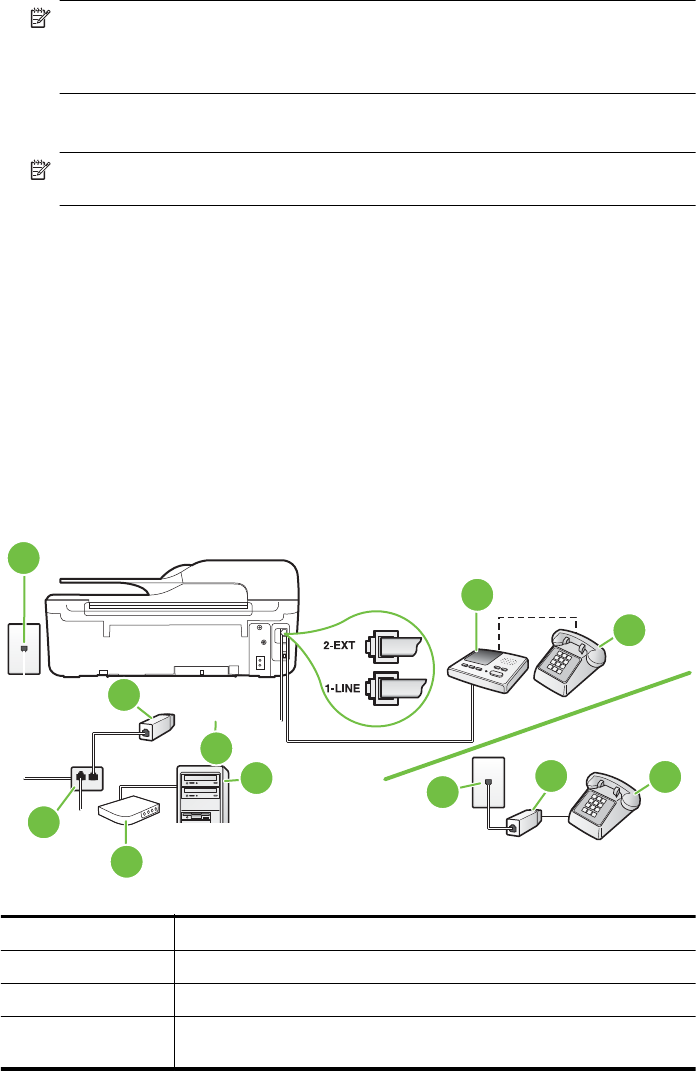
5. (Optional) If your answering machine does not have a built-in phone, for convenience you
might want to connect a phone to the back of your answering machine at the "OUT" port.
NOTE: If your answering machine does not let you connect an external phone, you can
purchase and use a parallel splitter (also known as a coupler) to connect both the
answering machine and telephone to the printer. You can use standard phone cords for
these connections.
6. If your modem software is set to receive faxes to your computer automatically, turn off that
setting.
NOTE: If you do not turn off the automatic fax reception setting in your modem software,
the printer cannot receive faxes.
7. Turn on the Auto Answer setting.
8. Set your answering machine to answer after a low number of rings.
9. Change the Rings to Answer setting on the printer to the maximum number of rings
supported by the product. (The maximum number of rings varies by country/region.)
10. Run a fax test.
When the phone rings, your answering machine answers after the number of rings you have set,
and then plays your recorded greeting. The printer monitors the call during this time, "listening" for
fax tones. If incoming fax tones are detected, the printer emits fax reception tones and receives
the fax; if there are no fax tones, the printer stops monitoring the line and your answering machine
can record a voice message.
If you encounter problems setting up the printer with optional equipment, contact your local
service provider or vendor for further assistance.
Shared voice/fax line with computer DSL/ADSL modem and answering machine
8
1
3
8
7
1
2
3
6
5
4
1 Telephone wall jack
2 Parallel splitter
3 DSL/ADSL filter
4 Phone cord provided with the printer connected to the 1-LINE port on
the back of the printer
Set up faxing (parallel phone systems) 193


















